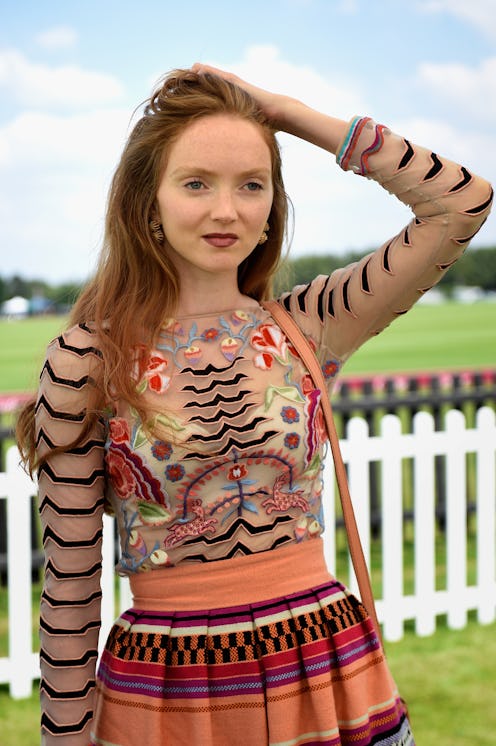Books
Model Lily Cole Was Appointed To A Literary Society & A Male Member Quit In Protest

The Brontë Society, which was founded in 1893 to preserve the literary and artistic legacy of authors Charlotte, Emily, and Anne Brontë and their brother Branwell, has become embroiled in a controversy involving their newest "creative partner" — Cambridge graduate, activist, and model Lily Cole. The decision to name Cole to the role prompted the resignation of The Real Guy Fawkes author Nick Holland, who wrote that Cole's appointment was "a rank farce." Now, Lily Cole has clapped back at Holland and other detractors, and feminist book-lovers everywhere are here for it.
Let's get one thing out of the way, right away: For a grown man and self-professed lover of women writers to pen a roiling screed that maligns Cole's supposed lack of acting ability, in the same breath as it bemoans the fact that her acting credits are unrelated to her fitness as creative partner, is the only bit of buffoonery at work here.
Holland asks, "What would Emily Brontë think if she found that the role of chief 'artist' and organiser in her celebratory year was a supermodel?" — as if being a supermodel somehow prevents a person from loving literature. He goes on to say that "[w]e all know the answer to that [question], and anyone who doesn’t isn’t fit to make the decision or have any role in the governance of the Brontë Society." Clearly, the only person fit to make such decisions, in Holland's mind, is Nick Holland himself. Now that the Brontë Society has made a decision he does not agree with, he's decided to take his proverbial ball and go home, all the while announcing his departure on a megaphone.
Lily Cole isn't here for Holland's misogyny, or anyone else's. She responded to the ex-Society member and other detractors, saying:
When I was asked by the Brontë Parsonage Museum to work on a piece to commemorate Emily Brontë’s birth I immediately thought of Emily’s pseudonym, and what that gesture represented. Why could a woman not publish under her own name? What was life like for women living in the UK in the 19th century? What circumstances would also give rise to a child being found abandoned in a city in the 18th century, as Heathcliff was?
Now I find myself wondering, fleetingly, if I should present the short film I am working on for the museum under a pseudonym myself, so that it will be judged on its own merits, rather than on my name, my gender, my image or my teenage decisions. I would not be so presumptuous as to guess Emily’s reaction to my appointment as a creative partner at the museum, were she alive today. Yet I respect her intellect and integrity enough to believe that she would not judge any piece of work on name alone.
Lily Cole will remain the Brontë Society's creative partner for 2018, and will be responsible for bringing more visitors to the Brontë Parsonage Museum during Wuthering Heights author Emily Brontë's bicentenary. For more information, visit the Brontë Society's website.